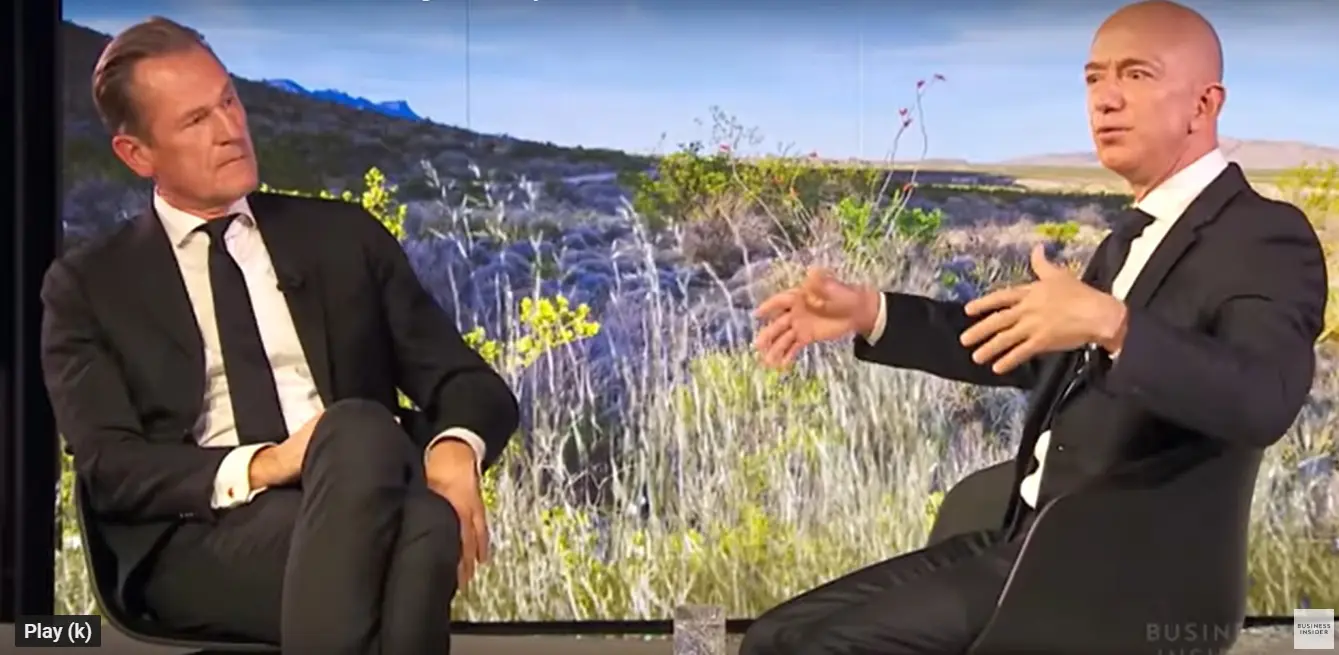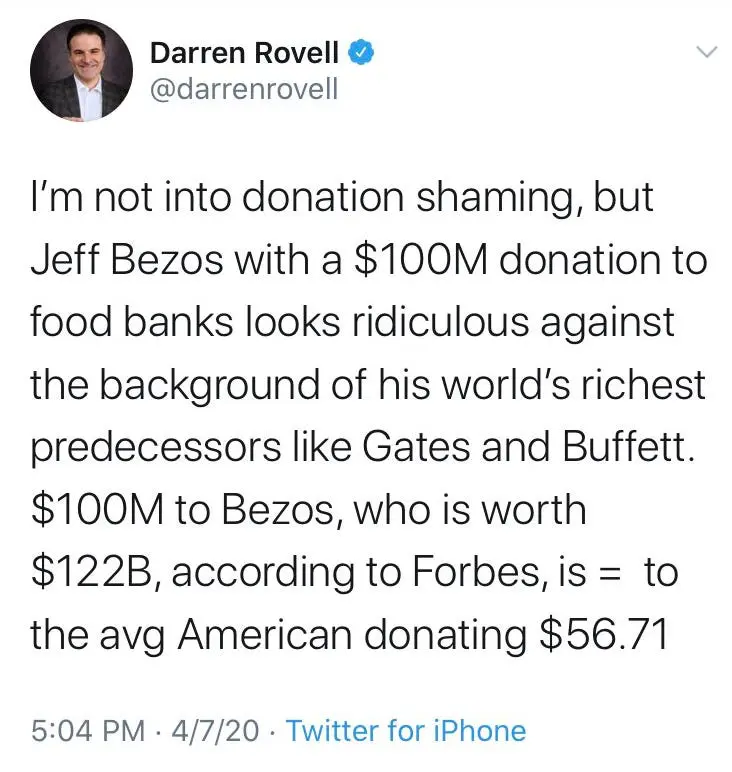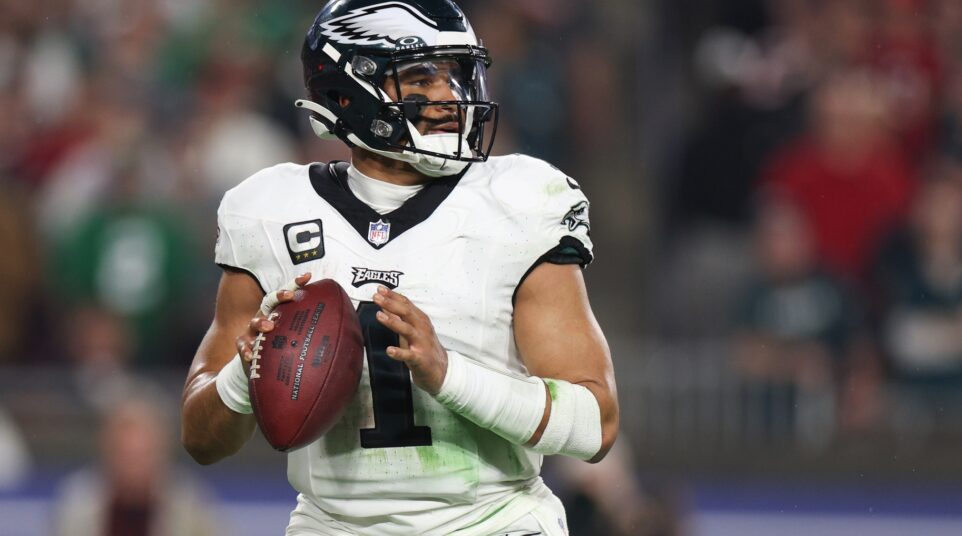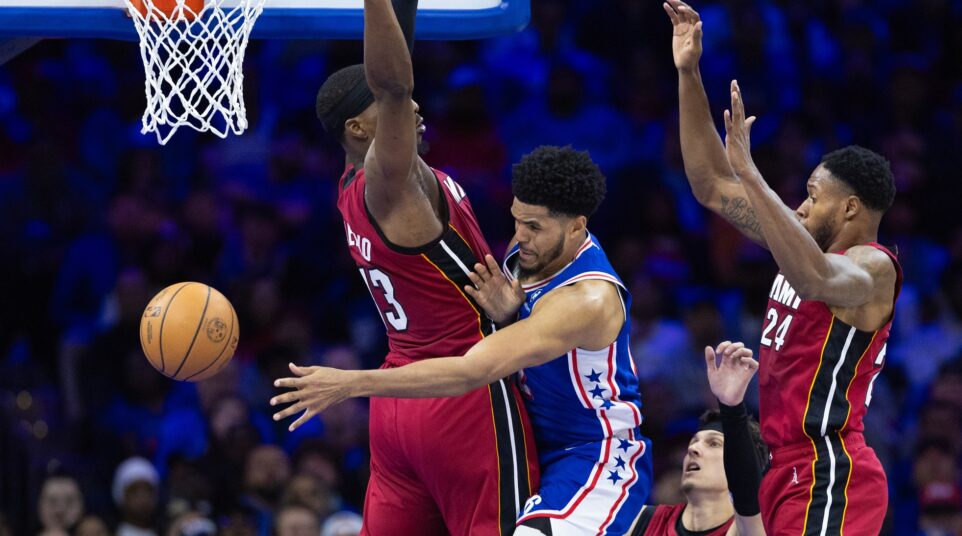
Opinion: "Donation Shaming" is Pointless and Adds Nothing to the Coronavirus Relief Effort
Tuesday, The Action Network’s Darren Rovell tweeted and deleted criticism of Amazon CEO Jeff Bezos, wondering why he only donated 100 million dollars to food banks during the Coronavirus crisis.
This is a common theme right now. You see a lot of people admonishing others for charitable efforts they deem inadequate, and the argument goes like this, thanks to a screen grab from Barstool Sports that preserved the tweet:
The logic isn’t hard to follow.
During a crisis, we’re looking to billionaires and people with resources to run point. We’re looking for folks like John Middleton and Jeffrey Lurie to step up and aid the community by tapping into their disproportionate amount of wealth to buoy us during an unprecedented time. For the most part, Philadelphia sports team owners and athletes have heeded the call.
The math behind the “donation shaming” is simple enough. Rovell isn’t wrong when he talks about how specific dollar amounts come out to a typically small percentage of a billionaire’s wealth. Of course, you’d have to factor net worth vs. liquid assets and resource amounts that are actually on hand, but people like him are simply saying that rich folks can afford to donate more since their financial profile is a lot more robust.
But the knee jerk reactions seem a bit backwards, and the trendy pile-on can be rather annoying for the fact of the matter that $100 million is still A LOT of money. Jeff Bezos’ $100 million goes a lot further than my $56.71. It feeds more people, buys more N95 masks, and keeps more folks away from the unemployment line.
Sam Parr, CEO of The Hustle, a tech and business news website, summed it up rather well when he wrote this on Twitter in response to the Rovell story:
Why measure someone’s donation on how much it hurts the giver vs how much it impacted others? $100m will likely do a ton of good.
Yeah, it will.
That’s not to say critics are totally off base, because if you’re in a position to make more of an impact than others simply because you have more money, then one could argue that the onus is on you to step it up, since your donation moves the needle much more than mine.
There’s also a stones and glass houses analogy somewhere in here. How many of the people complaining on Twitter have donated their $57 to Coronavirus relief efforts? Are you buying from local small businesses that are struggling? Have you gone out to give blood or check up on your neighbors to see if they need anything? There are plenty of ways to contribute that have nothing to do with money, and online criticism of the wealthy doesn’t mean anything unless we’re also doing our part, marginal as it may be.
Bottom line, donating $100 million helps during a global pandemic. Donating $57 helps during a global pandemic. If our first reaction to these gestures is one of negativity, then what does it really say about us? As it the case in most situations, the social media complaining is vacuous and stale.
Kyle: And the money actually has to have USE. Jack Dorsey just made $1 billion available and has a clear use for it. Can someone actually efficiently spend more than $100 million? Answer is probably not, i.e. if you gave us $100 million to make masks, could we actually do it? No. So it’s not just about amount its about HOW IT’S SPENT. If $250 million would SOLVE ALL HEALTHCARE ISSUES, i’m certain Bezos would give that much, but that’s not how it works.






